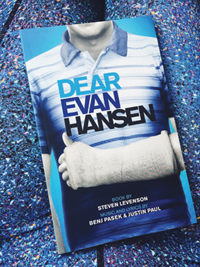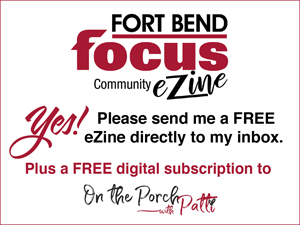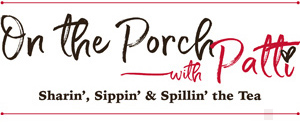Posted on Aug 31, 2017 in
COLLEGE DAZE

 Kassidi McKayla Kaminski is a sophomore studying Psychology in the Liberal Arts Honors Program at The University of Texas at Austin. After graduation she hopes to attend law school and is currently a member of Delta Gamma and a Young Life leader at Reagan High School.
Kassidi McKayla Kaminski is a sophomore studying Psychology in the Liberal Arts Honors Program at The University of Texas at Austin. After graduation she hopes to attend law school and is currently a member of Delta Gamma and a Young Life leader at Reagan High School.
 In the music world, transposition is the process of moving a collection of notes to another key. It’s a technical term, but the more I’ve come to appreciate music, the more I’ve realized that there’s a philosophical element to it as well. It comes from another definition of transpose, one that means to transfer something to a different context. For me, that context was my life story. When I was 18, I made what I call a “me” playlist, and on it I included any song that I felt transposed an element of my life. Perhaps the lyrics and orchestration gave me goosebumps, or I associated the song with a powerful memory. And upon recent reflection, I’ve realized that my life can be divided into three parts— three albums— that encompass significant, intertwining chunks of my two decades so far.
In the music world, transposition is the process of moving a collection of notes to another key. It’s a technical term, but the more I’ve come to appreciate music, the more I’ve realized that there’s a philosophical element to it as well. It comes from another definition of transpose, one that means to transfer something to a different context. For me, that context was my life story. When I was 18, I made what I call a “me” playlist, and on it I included any song that I felt transposed an element of my life. Perhaps the lyrics and orchestration gave me goosebumps, or I associated the song with a powerful memory. And upon recent reflection, I’ve realized that my life can be divided into three parts— three albums— that encompass significant, intertwining chunks of my two decades so far.
When I was a little girl, my mom worked with the Former Texas Rangers Foundation in Kerrville. Instead of leaving us home with the grandparents, my mom took my brother and me on her quarterly trips to the hill country. To give her ears a break from the shrill, show tune-imitating melodies of Disney songs, my mom played one of her favorites, the Dixie Chicks’ Fly album. This album, a staple of all of our road trips, gave me a first taste about what it’s like to fall in love, to feel heartbreak and to know the power of friendship.
 I cried during songs like “Heartbreak Town” and “Cold Day in July,” attempting to commiserate my elementary mind with the mature themes of depression and failed relationships. I couldn’t completely understand these songs at an age where my biggest concern in life was if my class would get recess time. But when I listen to the songs now, I close my eyes and memories of both my childhood and adolescence blend together in a watercolor moment of full realization and appreciation. When I hear “Cowboy Take Me Away,” I see a little girl gazing out of the car window upon the “pillow of bluebonnets” and the horizon devoid of buildings mentioned in the song. But she soon dissolves away to make room for a teenager riding shotgun in a pickup truck, belting the chorus with her best friend in an anthem to their future loves.
I cried during songs like “Heartbreak Town” and “Cold Day in July,” attempting to commiserate my elementary mind with the mature themes of depression and failed relationships. I couldn’t completely understand these songs at an age where my biggest concern in life was if my class would get recess time. But when I listen to the songs now, I close my eyes and memories of both my childhood and adolescence blend together in a watercolor moment of full realization and appreciation. When I hear “Cowboy Take Me Away,” I see a little girl gazing out of the car window upon the “pillow of bluebonnets” and the horizon devoid of buildings mentioned in the song. But she soon dissolves away to make room for a teenager riding shotgun in a pickup truck, belting the chorus with her best friend in an anthem to their future loves.
And the song “Ready to Run” most accurately reflects my view of life right now. The girl in the song feels pressured to fall in love and to succumb to the boringness of adulthood. I have several friends who imitate this mindset. They talk constantly about marriage and kids and careers – but they can’t even legally drink yet! Like the girl in the song, all I want to do right now is enjoy life through spontaneity and sometimes (mis)adventures. “What’s all this talk about love?” I’m wondering that same thing.
I did not peak during my junior and senior years of high school. It was a period imbued with illness and isolation. As a Christian, my faith felt uncomfortably dry and empty. I didn’t feel God in the pop-infused songs played on the radio, nor did I feel Him in my physical weakness. But then I rediscovered my faith in NEEDTOBREATHE’s Rivers in the Wasteland. Through the simplicity of soft a guitar and a slow piano, I realized that my God speaks the loudest in stillness. He has the ability to “take a broken man” who has ruined his own life and use him as a mouthpiece for redemption (“Difference Maker”). Much like a phoenix, people can be reborn from the ashes of their self-ruin. All we need is a sliver of God’s protection and presence – “a crack in the door filled with light” – to affirm that darkness has no greater enemy than love (“Wasteland”).
 In college my wastelands look a little differently than my high school ones. I struggle with over-commitment, exhaustion and tranquility over my future. But I’m reminded of the lyric “long live the heart, long live the soul, that knows what it wants” (“The Heart”) and its call for me to unearth what stirs my soul and pursue it wholeheartedly.
In college my wastelands look a little differently than my high school ones. I struggle with over-commitment, exhaustion and tranquility over my future. But I’m reminded of the lyric “long live the heart, long live the soul, that knows what it wants” (“The Heart”) and its call for me to unearth what stirs my soul and pursue it wholeheartedly.
So that’s what I’m attempting to do – find my purpose in this world and leave a lasting mark. But the biggest things I struggle with are connection and comparison. I see other people my age already achieving their first career milestones – a dream internship, an exclusive club, ingenious networking – and feel like my dreams are too small to connect me to those around me. And that’s when I listened to the Dear Evan Hansen soundtrack by Benj Pasek and Justin Paul. The title character in this musical shares my struggle in connecting with people. We both retain a view of ourselves as an outsider looking in on the success of others and worrying that we’ll never be more than the person we’ve always been, that we’ll never grow into better versions of ourselves (“Waving Through a Window”). I’ve been reminded through this album of the uniqueness of the human connection, our innate necessity to feel loved and to be found (“You Will Be Found”).
In a time built on faux social media connections, it’s easy to fabricate yourself in the projection of how you want others to see you. We crave sameness and sacrifice humanity for homogeneity. But I’m learning to accept as Ben Platt, the actor who received a Tony for his portrayal of Evan Hansen, remarked in his acceptance speech, “The things that make you strange are the things that make you powerful.” And any day after acknowledging this truth can be a good day, “because at least you’re you, and that’s enough” (“Finale”).

 <
<








 Kassidi McKayla Kaminski is a sophomore studying Psychology in the Liberal Arts Honors Program at The University of Texas at Austin. After graduation she hopes to attend law school and is currently a member of Delta Gamma and a Young Life leader at Reagan High School.
Kassidi McKayla Kaminski is a sophomore studying Psychology in the Liberal Arts Honors Program at The University of Texas at Austin. After graduation she hopes to attend law school and is currently a member of Delta Gamma and a Young Life leader at Reagan High School. In the music world, transposition is the process of moving a collection of notes to another key.
In the music world, transposition is the process of moving a collection of notes to another key. I cried during songs like “Heartbreak Town” and “Cold Day in July,” attempting to commiserate my elementary mind with the mature themes of depression and failed relationships.
I cried during songs like “Heartbreak Town” and “Cold Day in July,” attempting to commiserate my elementary mind with the mature themes of depression and failed relationships. In college my wastelands look a little differently than my high school ones. I struggle with over-commitment, exhaustion and tranquility over my future. But I’m reminded of the lyric “long live the heart, long live the soul, that knows what it wants” (“The Heart”) and its call for me to unearth what stirs my soul and pursue it wholeheartedly.
In college my wastelands look a little differently than my high school ones. I struggle with over-commitment, exhaustion and tranquility over my future. But I’m reminded of the lyric “long live the heart, long live the soul, that knows what it wants” (“The Heart”) and its call for me to unearth what stirs my soul and pursue it wholeheartedly.